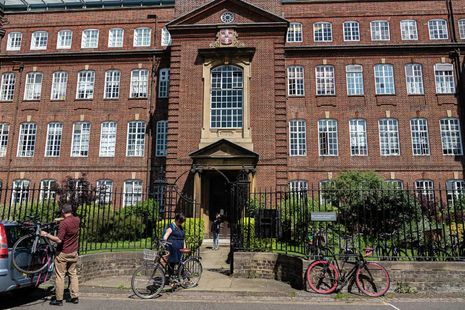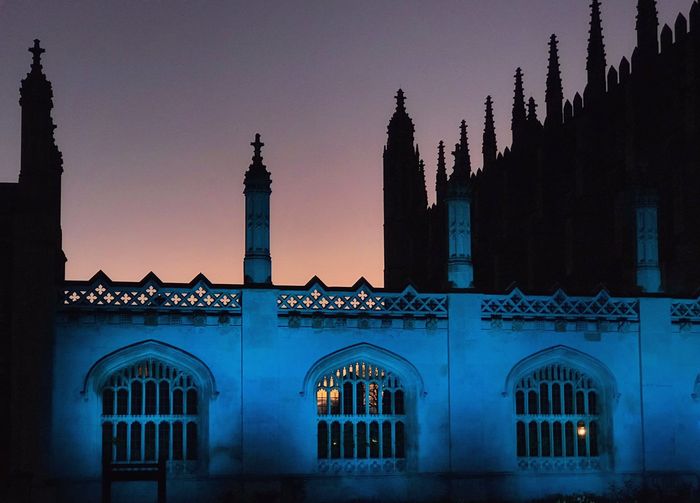Over 1200 Cambridge scientists respond to call for volunteers in fight against COVID-19
Speaking to researchers who have remained working in the few labs still open, many procedures taking place are requiring researchers to work “in close proximity”.

Across the University and in affiliated institutions, over 1200 scientists have volunteered to participate in the research effort against the COVID-19 pandemic.
Biologists from the campuses of the Babraham and Sanger institutes, as well as from University departments and Cambridge’s biotechnology companies, have signed up.
“We have begun placing volunteers already, for example some are being utilised in the sequencing of COVID-19 as part of the COG-UK [COVID-19 Genomics UK] consortium, whilst others have gone to the national testing centre in Milton Keynes,” explained Dr. Rhys Grant of Cancer Research UK’s Cambridge Institute, who is coordinating the call for volunteers.
The news comes after Vice Chancellor Stephen Toope announced on 18th March that the University was moving into the “red” phase of its response to the coronavirus pandemic.
Professor Ian Goodfellow, at the Department of Pathology, is leading the Cambridge component of COG-UK. He continues to work in the lab, sequencing the viral genome as part of the consortium.
Although additional precautions, such as limiting the number of people in the lab, have been taken in light of the social distancing measures recommended by the Government, Goodfellow points out that the risk from the samples themselves is low.
“We aren’t handling live viruses here so this isn’t really a concern for us yet. Most virologists can handle these types of pathogens with a little extra training,” he told Varsity.
Implementing social distancing can prove difficult in practice, however, as Goodfellow notes: “In reality the nature of the work is such that we have to work in close proximity for many of the procedures”.
At the Department of Medicine, Professor Stephen Baker’s lab is also continuing to operate through the lockdown, supporting the Intensive Care Unit at Addenbrooke’s Hospital by carrying out extraction and detection of viral samples from swabs.
Here too, routines have changed due to social distancing, with meetings taking place “spaced out in big rooms and on Zoom”.
Despite the University’s research and testing effort, most laboratories, including some working on questions related to the pandemic, have been shut as part of measures to prevent transmission of the virus.
“The Lab itself is closed so the Division of Virology is in effect empty. We have a very dedicated lab manager and deputy lab manager that come in simply to help us maintain the lab so that we can work. We have stopped all other work other than that related to COVID,” says Goodfellow.
Dr. Aartjan te Veltuis, for example, is one of the scientists currently working from home. He completed a PhD on SARS-CoV, a coronavirus very closely related to SARS-CoV-2, the pathogen causing the current pandemic. As part of his work, te Velthuis developed a test, or assay, for the SARS-CoV RNA polymerase which synthesises the virus’ genome.
“I started looking into whether we could develop a similar assay for the RNA polymerase of SARS-coronavirus-2 when it emerged. We were planning to use this assay to look at which types of viral RNA are immunostimulatory, and if the RNA polymerase inhibitors that we have in our freezers might work against the pandemic virus,” te Velthuis explained to Varsity.
When his lab at the Department of Pathology was closed, he sent his RNA polymerase inhibitors to the University of Oxford, where researchers are still allowed to work on the virus.
Institutes outside Cambridge, but affiliated to the University, are also participating in the national COVID response. The Wellcome Trust Sanger Institute, located nine miles south of Cambridge, is one of the organisations participating in the COG-UK sequencing initiative.
Staff at the institute analyse genetic sequences from confirmed cases of COVID-19 around the UK to determine how the virus is evolving.
As is the case at University departments, most staff are working from home. A spokesperson for the Institute confirmed that only labs participating in COG-UK and the animal research facility remain open.
Meanwhile, in the Department of Veterinary Medicine, work at the Laboratory of Viral Zoonotics (LVZ) on a vaccine against the virus is proceeding. COVID-19 is not LVZ’s first contagious pathogen, as the group has worked with several other viruses transmitted to humans from animals in the past.
Dr. Rebecca Kinsley, a researcher at LVZ, said: “There are strict rules and regulations that must always be followed when working with zoonotic viruses and for this Coronavirus.”
“The first stages of vaccine development do not require testing with live virus, we have alternative, safer biological tools that we can use to mimic the virus.”
Across the UK, the number of cases COVID-19 continues to rise, with over 200 confirmed cases in Cambridgeshire.
 News / Judge Business School advisor resigns over Epstein and Andrew links18 February 2026
News / Judge Business School advisor resigns over Epstein and Andrew links18 February 2026 News / Gov grants £36m to Cambridge supercomputer17 February 2026
News / Gov grants £36m to Cambridge supercomputer17 February 2026 News / CUCA members attend Reform rally in London20 February 2026
News / CUCA members attend Reform rally in London20 February 2026 News / Union speakers condemn ‘hateful’ Katie Hopkins speech14 February 2026
News / Union speakers condemn ‘hateful’ Katie Hopkins speech14 February 2026 News / Hundreds of Cambridge academics demand vote on fate of vet course20 February 2026
News / Hundreds of Cambridge academics demand vote on fate of vet course20 February 2026










